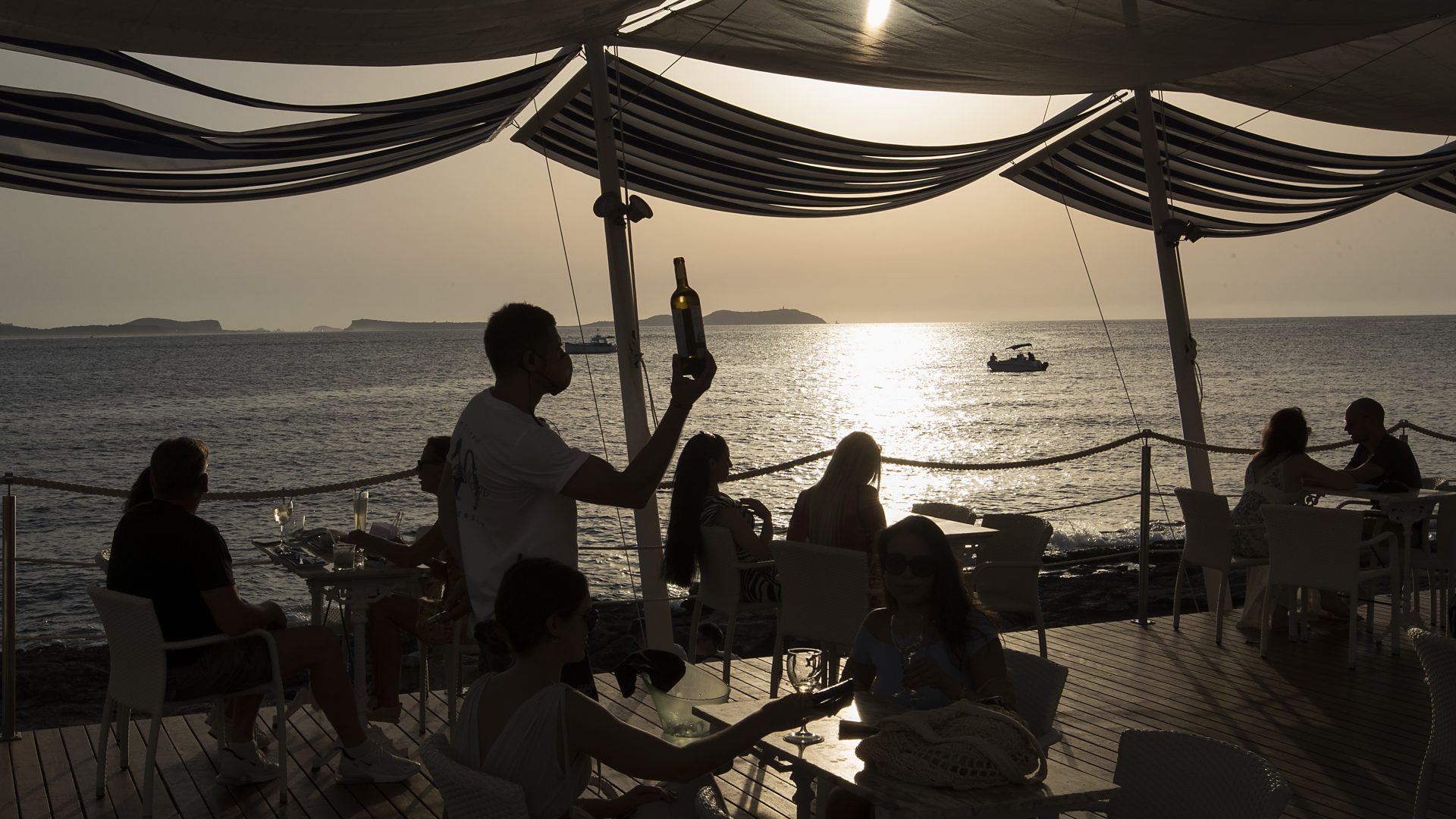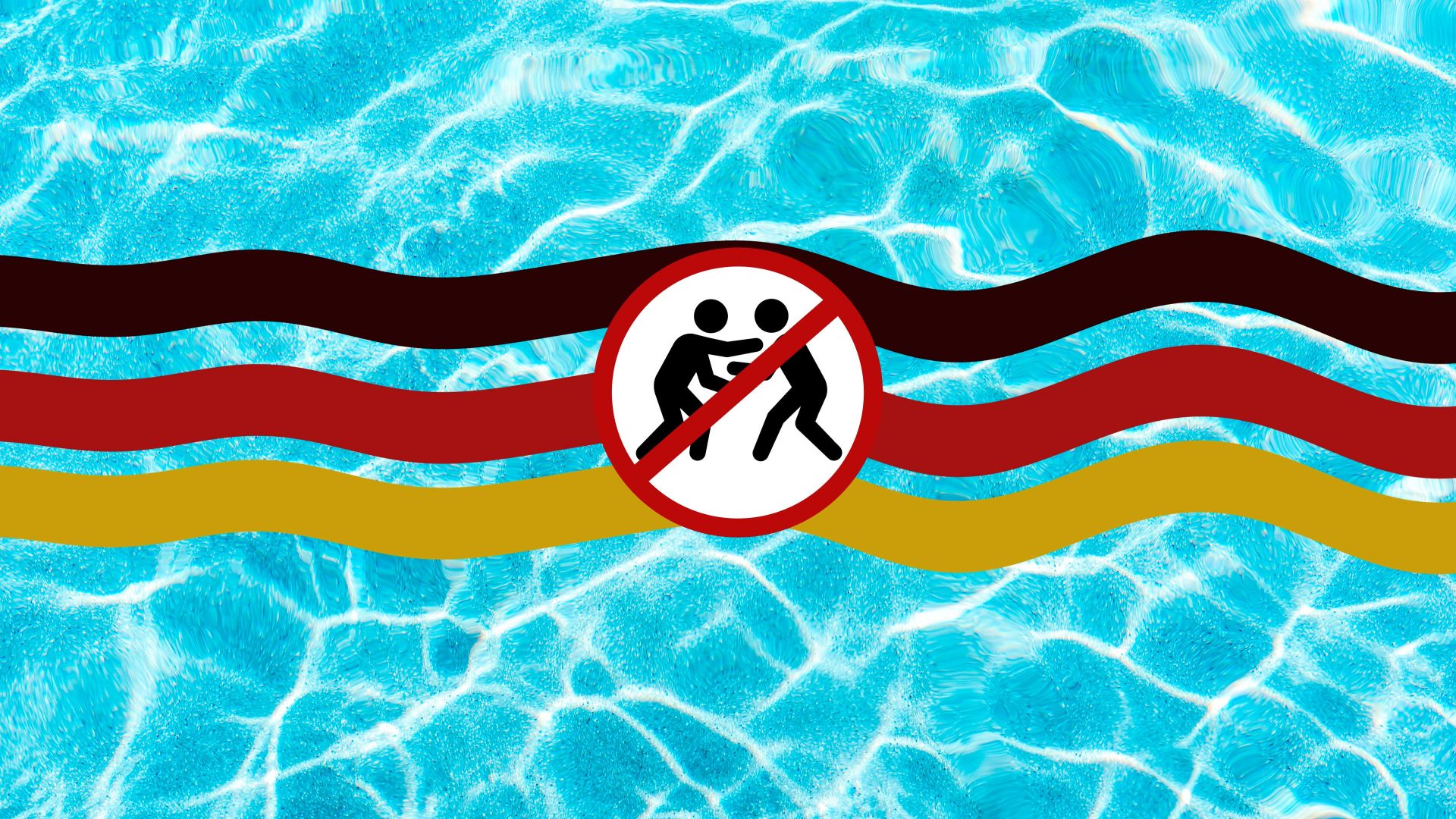The sun might have set hours ago, but the heat is still clammy as I squeeze through the West End neighbourhood of San Antonio, the capital of Ibiza. I can just about make out my guide’s voice above the drunken clamour of the holidaymakers. Sweat and alcohol are heavy in the air, mingled with other smells.
I am here working for a charity to help people living on the streets.
Once a sprawling grid of clubs and bars, in recent years San Antonio’s world-famous West End has withered to a narrow central strip. Facing the aftermath of Covid-19 and a post-Brexit situation where Brits looking to work the season are struggling to get visas, the golden age of the world’s clubbing capital is fading away. Scores of clubs and bars have shut down. Not many new ones are opening.
The local government is trying to turn the tide on Ibiza’s hedonistic reputation and is aiming for a more upmarket clientele. New regulations in San Antonio mean that, from now on, hotels built in the area have to be 4 star or above. Wandering past another derelict building, I notice a proud but tatty “open till 6am” sign – but clubs now shut at 3am and the bars at 2pm. After 20 years of non-stop partying, Ibiza is turning in for an early night.
But choosing to go for an all-new demographic, rather than backing the established clubbing scene, is a gamble. A clampdown on clubbers may result in cleaner streets, but it could also leave Ibiza’s party district completely empty.
Despite the best intentions of the local government, Ibiza feels stuck in no man’s land. The Scottish, Welsh and Irish pubs that are still thriving as the bars and clubs around them shut down are a clear indication of how much San Antonio is a town built for Brits abroad. What happens if they don’t come?
As I spend my days – or more accurately my nights – watching the revelry of Ibiza’s party scene, I can see the enormous challenge that lies ahead for a city – and an island – that’s trying to rebrand itself. And you can see why they might want change. At night it feels as if the streets are answerable to no one but the constant crowds of uninhibited partygoers.
The party scene has seen better days. “Privilege”, once the largest club in the world, shut down during the pandemic and hasn’t re-opened. Its empty carcass scars the landscape.
As I wander the streets, I look up at the balconies of those living above the carnival. Some are hotels, others holiday rentals, but a large proportion are just homes, where Ibizans hold out for the quiet of the off-season.
I chat to one local woman, and it’s a reminder that for many people this place is their home, not just a destination – which seems to make the gamble more justifiable. She tells me about the incessant noise and smells, the pickpocketing and the drugs. The neighbourhood has changed since she was young.
The policies to change Ibiza have helped to calm things down a little. For her sake, and for others’ sake, I hope the gamble pays off.



